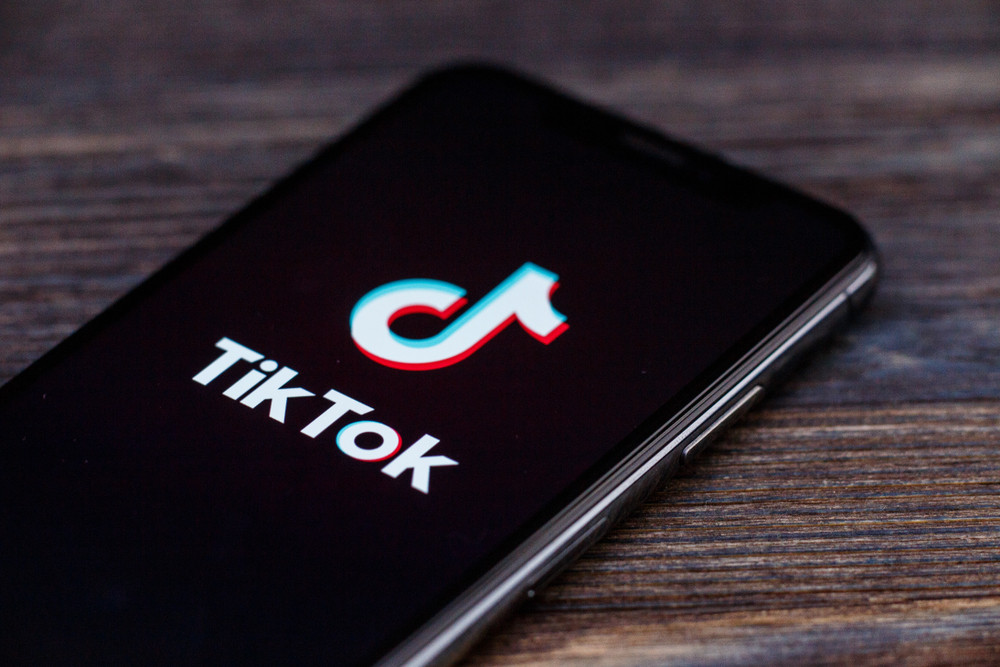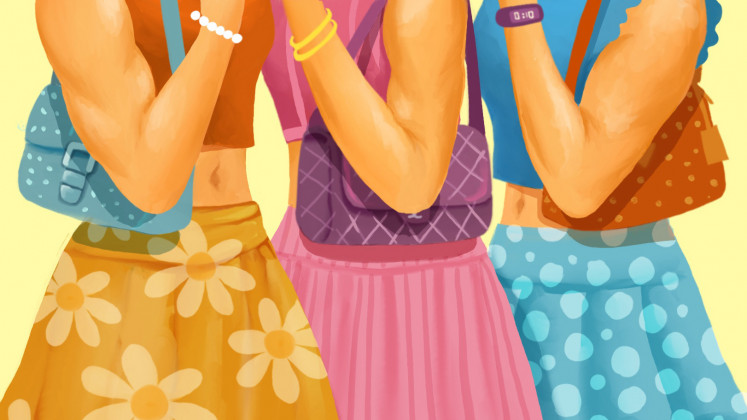Popular Reads
Top Results
Can't find what you're looking for?
View all search resultsPopular Reads
Top Results
Can't find what you're looking for?
View all search resultsWhy TikTok is becoming go-to platform for K-pop
BTS, whose popularity had been attributed to their active communication with fans via Twitter and YouTube, also joined TikTok last year. In three hours and 31 minutes, the group’s account attracted 1 million followers, setting a mark recognized by the Guinness World Records.
Change text size
Gift Premium Articles
to Anyone
J
ust 12 hours before global sensation BTS released its newest album “Map of the Soul: 7” last month, the group dropped a 30-second preview of lead track “On” -- not on Facebook, Twitter or Instagram, but on TikTok.
TikTok, a short-form video-sharing app owned by Chinese company ByteDance, is becoming the go-to platform for K-pop. Since its release in 2016, the app has witnessed a meteoric rise. According to app analytics site Sensor Tower, its downloads worldwide have exceeded 1.7 billion to date, even outpacing those of bigger rivals Facebook, Instagram, Twitter and Snapchat in 2019.
The app’s appeal to the K-pop industry is in its very nature. The largest portion of TikTok users are Generation Z -- those born from the mid-1990s to early 2010s -- in line with the age range of many idols’ fan bases. Its 15- to 60-second videos also match the length of a song’s chorus. And easy to use, the platform demands users’ participation: 66 percent of them create and post their own videos, according to TikTok Korea. That makes content go viral much more quickly than on other social media platforms.
Because the app pays royalties for all songs available on the platform, users also do not have to pay copyright fees to insert background music in videos -- a convenience that catapulted dance clips to take off in the first place, with many more to come.
BTS, whose popularity had been attributed to their active communication with fans via Twitter and YouTube, also joined TikTok last year. In three hours and 31 minutes, the group’s account attracted 1 million followers, setting a mark recognized by the Guinness World Records.
Since then, the septet has launched several dance challenges with hashtags, including for J-Hope’s hip-hop single with Becky G. The group has garnered more than 315 million views and 42 million likes on the app, while many fans are joining the app just to support the group.
Read also: Banned and adored: TikTok in a nutshell
And the act took its presence on TikTok to another level, unveiling a teaser of new single “On” via the platform. In fact, it was the first time for an artist to premier a new song using the video platform.
“Since ‘On’ requires a level of dancing not easily attainable to the public, it isn’t suitable for a dance challenge. But the fact that BTS went for TikTok instead of YouTube is a testament to the app’s growing influence,” said pop culture critic Jung Min-jae.
Even though TikTok stresses that it does not focus solely on K-pop, the platform has been increasingly contacting K-pop artists and their labels for possible collaborations, largely buoyed by the latest hit with rapper Zico and his digital single “Any Song.”
In less than two months, the “Any Song” dance challenge collaboration received over 400 million views on the platform. Around 830,000 videos have been created with the track. Celebrities including Lee Hyo-ri, hailed as the “Beyonce of Korea,” joined in on the fun. Consequently, the song remained No. 1 on Korean music chart Melon for 34 days.
Others haven’t been quite as fortunate though. JYP and HyunA started challenges with their respective songs “Fever” and “Flower Shower,” but didn’t gain much traction, perhaps because of their complicated choreographies. Girl groups Cherry Bullet, GFriend and Loona shared similar experiences.
“It certainly must be an appealing item among K-pop choreographers as more success stories like ‘Any Song’ are coming. K-pop artists will try to use TikTok in any way possible for their marketing, at least for a while,” said culture critic Jung.
This article appeared on The Korea Herald newspaper website, which is a member of Asia News Network and a media partner of The Jakarta Post











